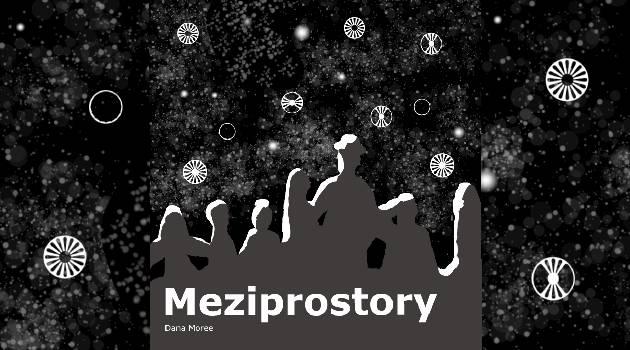Czech academic publishes book on how to work with groups where non-Romani and Romani people come together

An innovative, unique book in the Czech environment describes what was learned when 50 participants in several groups of both non-Roma and Roma were asked how to approach working in ethnically mixed groups; Meziprostory (Interclusions) features interviews with non-Romani and Romani “elites” and has just been published. The book was written by Dana Moree of Charles University’s Faculty of Humanities (FHS UK), where students also participated in its production.
The Karolinum publishing house has released the title. In addition to interviews, the book deals with schools near excluded localities and maps the creation of a theatre group of non-Roma and Roma in Ústí nad Labem, Czech Republic, where the untrained actors worked using the “Theater of the Oppressed” method.
Above all, the publication maps the barriers that complicate the creation of interclusions between different groups and seeks strategies to help their members establish connections with each other. The book uses three interrelated terms that play an essential role in understanding these mechanisms: prejudice, status and stigma.
What are interclusions? The author uses that term to indicate either an imagined or a physical place where people from different groups come together.
She repeatedly notes that even when the members of such a group show significant willingness to cooperate and great sensitivity to individuals’ stories, everything does not run smoothly. This is mainly due to the previous experiences of inequalities the participants bring with them, which influence the members of both groups.
Although everybody is making an effort to interact, those experiences are present when working with the group. Such experiences need to be taken seriously.
The book’s contribution is that it formulates the principles that can aid ethnically mixed groups with fulfilling the purposes for which they have come together, principles that can assist them with finding their way together more easily. These principles were shaped from a combination of literature review, reflection on the specific situations of the 50 participants surveyed, and the use of various research methods.
“The experiences in the lives of the members of mixed groups have to be taken seriously. That includes some experiences that may seem ‘irrelevant’, or that surprise us,” Moree explains.
“For example, when riding on buses, there are places where people separate themselves into non-Roma and Romani groups when they take their seats. When we work truthfully with these experiences and others, we discover access paths to encounters that are not anticipated and have the potential to overcome the triad of prejudice / status / stigma,” Moree says, adding that “This is about encounters where we can all get along together.”
“Getting along cannot be taken for granted, and when the triad comes into play, we have to aid the group as whole with overcoming it through a process. Interclusions is about mapping such encounters and the journeys that led to them,” the author says.
Mgr. Dana Moree, Dr., lectures in the Civil Society Studies program at FHS UK; professionally, she works on subjects related to intercultural coexistence, such as conflict, cultural misunderstandings, culture itself, exclusion processes, identity and inclusion. She also concentrates on research into the influence of societal transformations on education and the engagement of groups and their individual members.
She has authored several publications on these subjects. FHS UK also offers a course on Working with groups that are marginalized through the “Theater of the Oppressed”.
